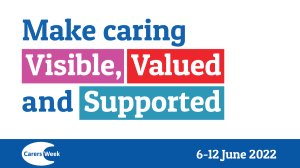This week is national Carers Week, an annual campaign to raise awareness of the experiences of those who have caring responsibilities.
Over the last few months, my team has been conducting an Attendance Audit, a series of deep dives in 10 local authorities (LAs) to understand the experiences of children who are not attending school regularly or who are out of school altogether. As part of this research, the team has heard from young carers about their experiences of trying to balance their caring role with their time and school and homework.
We will publish our full findings from this research in the coming weeks. However, to mark Carers Week I wanted to share some of these experiences, which I have included below in children’s quotes. Alongside this, I wanted to set out some solutions to achieve the Carers Week ambition of all young carers being ‘Visible, Valued and Supported’.
Young carers are providing immeasurable support to their families, sometimes at the cost of their own education. Many young carers we spoke to struggled to attend school on time or even go into school every day. As one 11-year-old girl told us in our Attendance Audit focus groups:
“At school I’m 3 years behind I feel like I’m not getting the right amount of support with my work. I’m really scared of going to secondary school because I feel like I’m not going to get the support” – Girl, 11, young carer.
Visible
Services and schools need to be able to identify young carers to make sure that they are able to access support. Many young carers told us how hard it was trying to describe their unique situation to all of their teachers, as one 12-year-old girl told us in our Attendance Audit focus groups:
“Going to school sometimes can be a bit overwhelming particularly if you have had to deal with quite a lot at home then having to go to school and be on your top game […] I can try my best to explain to them what I’m going through but ultimately, they’re never going to fully be able to relate to me” – Girl, 12, Young Carer.
There is a great, simple survey tool that can be used to identify young carers which is already available for free. The Multidimensional Assessment of Caring Activities (MACA) which can be used in any setting, such as a school or Family Hub to identify young carers. The survey can be downloaded for free here. All schools should be using the MACA to make sure that they are aware of any young carers in their school who may be struggling.
Valued
We need to recognise the contribution that young carers are making, and make sure that the right services are in place that they do not need to miss school to provide care. Establishing a young carers champion in every school, and making sure that every school has a young carers policy would recognise the needs of these extraordinary young people and ensure that they have a trusted adult who can champion their needs.
Supported
When young carers have support in school it makes a huge, positive difference in their lives. As one young carer told us when asked what they liked about school in our Attendance Audit focus groups:
“I like how there is certain teachers that you can go and talk to if there is something bothering you, especially if there’s something bothering you at home and they’ll help you get through it” – Girl, 15, young carer.
Another young carer from our focus groups, who was supported by a young carer’s champion in her school said she liked:
“Having a really good support team to talk to about things, having somewhere to go when things are too difficult or having someone to talk to when things are too difficult to deal with on your own” – Girl, 15, young carer.
Young carers have to navigate sometimes extremely challenging circumstances and often they do this alone without support from the services that could be available to them. All young carers should be assessed under section 17 of the Children Act 1989 to ensure that they receive the right support to help them to thrive.
We will continue to research the needs of young carers through our Independent Family Review, to fill the gaps in our existing evidence and work with them to identify solutions to the challenges they face.






